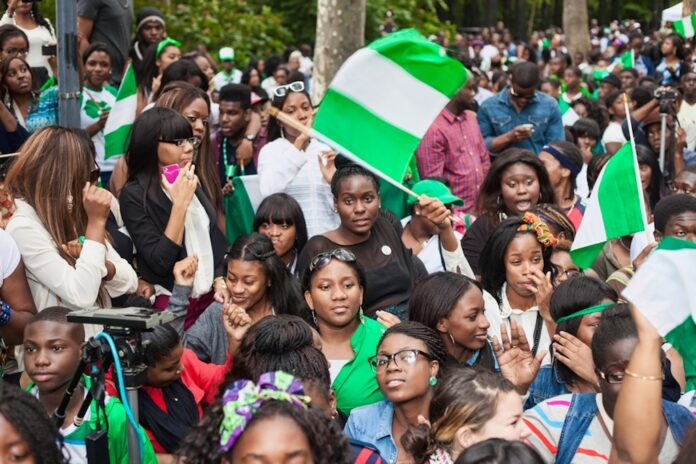By Zaynab Alhassan Abdullahi
Political apathy, characterized by indifference, lack of trust, or outright refusal to engage in civic life, is a growing concern in Nigeria, particularly among its young population. As the country’s largest demographic bloc, young Nigerians possess enormous potential to shape electoral outcomes. Yet, despite this numerical strength, voter turnout continues to dwindle, and the voices of youths remain faint in the political space.
In the Nigerian context, political apathy is seen in low participation during elections, widespread skepticism toward electoral institutions, and a deep-rooted perception that individual civic action rarely brings meaningful change. This sense of futility has contributed significantly to declining turnout in recent years.
When we speak of “youths,” we refer to Nigerians between the ages of 18 and 35, a category that represents the most active and mobile segment of society. Legally, Nigerians can vote at 18, and since the 2018 Not Too Young To Run law, they can contest for a variety of political offices at younger ages than before. Yet, despite these reforms, young people remain on the margins of Nigeria’s political engagement.
Why is this so? At the heart of the problem is a widening trust deficit. According to a 2023 citizen report, nearly three-quarters of young Nigerians do not trust the Independent National Electoral Commission (INEC) to conduct credible elections. The 2023 general elections, which recorded a voter turnout of only about 28 percent—the lowest since Nigeria’s return to democracy in 1999—reinforced these fears. This was despite the fact that more than three-quarters of newly registered voters were youths. INEC Chairman Prof. Mahmood Yakubu himself admitted that, “Over the last two electoral cycles, including off-season elections, voter turnout across the country hovered around 30 to 35 per cent,” with some constituencies recording “as low as 8.3 per cent.”¹
Another factor is the pervasiveness of misinformation. Studies show that more than 90 percent of young Nigerians encounter misleading political information online, and over 70 percent admit that disinformation on social media influenced their decision to disengage from politics. Paradoxically, while the majority of youths rely on digital platforms for news, very few trust what they read there. The result is a cycle of confusion, doubt, and eventual withdrawal. As Njideka Agbo, writing for The Guardian, observed, “INEC’s centralisation around the chairman’s image fuels distrust. Transparency and stronger civic education are needed to restore confidence and fight apathy.”²
Structural barriers also play a role. The inability to vote outside one’s place of registration poses a major obstacle to youths who are often mobile due to work, school, or family reasons. INEC’s Chief Press Secretary, Rotimi Oyekanmi, acknowledged this problem, noting: “The restriction that ties a voter to his or her polling unit of registration is one of the reasons for voter apathy… Nigerians who have relocated for work or other reasons are effectively disenfranchised.”³ Added to this are the socio-economic struggles of unemployment, poverty, and the memory of government inertia in addressing movements such as #EndSARS. Many young Nigerians feel that their energy and voices do not translate into concrete political results.
This disillusionment expresses itself in many ways. Some young Nigerians register to vote but stay home on election day, believing their votes will not count. Others avoid registration altogether, dismissing politics as hopelessly corrupt. Still, a small but determined group persists, casting their ballots at every opportunity in the hope that change, however delayed, will eventually come.
“I collected my PVC, but I just don’t believe my vote matters. Nothing changes,” said 24-year-old Shu’aib, a final year student. Another young man Mansur, 21 and unemployed, admitted: “I never registered. Why should I? Politics is corrupt and all politicians are the same. Even the people that registered and voted, did it change anything??” Yet, there are also voices of resilience. A 30-year-old professional photographer, Samuel, told me: “I vote every chance I get because someone has to try to make things better, even if it’s small. I still have hope that things will change.”
Stakeholders across society echo these frustrations. Festus Okoye, INEC National Commissioner, once called low participation a “grave and unacceptable paradox” and urged “a collective push to reverse low voter turnout in elections.”⁴ Similarly, the Inter-Party Advisory Council (IPAC) warned in 2024 that “the rising cost of living is fueling voter apathy. Unless addressed, economic hardship will continue to dampen participation.”⁵ The Punch Editorial Board put it more starkly: “Voter apathy is rooted in bad governance and the failure of politicians to deliver on promises. The greatest threat to democracy is indifference.”⁶
So what can be done to bridge the widening gap between Nigerian youths and politics? First, reforms are needed to strengthen trust and accessibility. Allowing citizens to vote outside their registration areas would help many young people participate. Regular audits of the voter register would also eliminate doubts about credibility. The government should also do its best to ensure free and fair elections. As democracy advocate Idayat Hassan noted, “Democracy’s failure to deliver development dampens voter enthusiasm. INEC must improve election management and clean the register of ineligible voters.”⁷
Second, media literacy and civic education must be expanded. By teaching young Nigerians how to identify misinformation and understand their civic rights, they will be better equipped to resist disinformation and engage more meaningfully. Campaigns like INEC’s “Youth Vote Count,” which use town halls, social media, and campus outreach, are steps in the right direction.
Third, electoral and legal reforms should make it easier for citizens to register and vote. Simplifying processes, deploying mobile registration units, and enforcing penalties for electoral malpractice would encourage greater trust in the system. Also, the rule of law should be enforced: every wrongdoer should be punished accordingly, irrespective of age, money, power, or position.
Finally, civic mobilization must become more youth-focused. By leveraging popular culture, influencers, and community leaders, voting can be reframed not just as a duty but as a collective movement of hope and responsibility.
Young Nigerians are not apathetic by nature. They have demonstrated energy, innovation, and resilience in other areas of life. What is missing is their confidence in a system that too often fails to reward their participation. As one youth aptly put it, “When we’re heard, we show up.” The challenge and the opportunity for Nigeria is to create a political culture where showing up is both meaningful and impactful.


